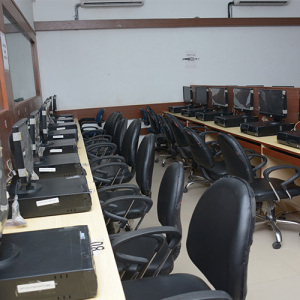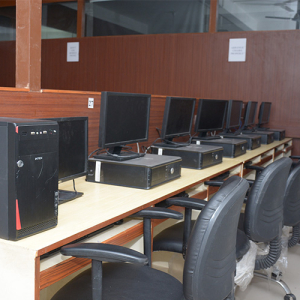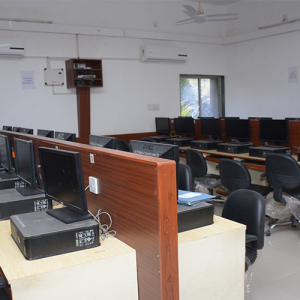Bechlor in
Artificial Intelligence
About Department
The Bachelor’s in Artificial Intelligence program at the Cyber Security Branch at GIT was also initiated in 2023. It offers a four-year bachelor’s degree in Artificial Intelligence with an intake of 30 students. Like the Cyber Security program, it is affiliated with Gandhinagar University.
To facilitate effective learning, the department has assembled a talented pool of faculty members who possess expertise in various aspects of AI. These experienced professionals are dedicated to imparting knowledge and guiding students through their academic journey. Additionally, the program benefits from state-of-the-art infrastructure, including modern computer laboratories equipped with high-configured systems. This one-to-one computer-student ratio ensures that each student has access to the necessary tools and resources to enhance their understanding and hands-on experience in Artificial Intelligence.
The Cyber Security Branch at GIT offers a Bachelor’s degree program in Artificial Intelligence to nurture skilled professionals for the field. With an industry-aligned curriculum, qualified faculty, and cutting-edge infrastructure, it provides a reputable choice for individuals seeking a robust education in this rapidly growing field.
Courses Offered:
- B. Tech. Cyber Security (60)
- M.Tech in Cyber Security & Digital Forensic (18)
- PG Diploma in Cyber Security & Digital Forensic (40)
Program Outcomes
- Comprehensive understanding of AI theories and methodologies.
- Technical proficiency in programming and AI tools.
- Expertise in machine learning techniques and algorithms.
- Problem-solving skills using AI approaches.
- Ethical and responsible AI practices.
- Collaboration and effective teamwork.
- Research skills and innovation.
- Commitment to lifelong learning.
- Industry-relevant knowledge and skills.
- Leadership and entrepreneurial abilities.
What The Students Learn In Artificial Intelligence ?
Students learn following subjects of Artificial Intelligance:
- Fundamentals of AI: Students gain a strong foundation in principles, theories, and methodologies of AI, exploring its subfields and applications.
- Machine Learning: Students study various ML techniques, algorithms, and models for classification, regression, clustering, and NLP tasks.
- Data Analysis and Big Data: Students acquire skills in analyzing large datasets, extracting insights, and handling big data challenges through data mining and visualization techniques.
- Students explore neural network concepts, architectures, and frameworks (e.g., TensorFlow, PyTorch) for deep learning algorithm training and deployment.
- Students learn natural language processing techniques for sentiment analysis, text classification, information extraction, and machine translation.
- Computer Vision: Students study object recognition, image segmentation, face recognition, and image generation using convolutional neural networks and other techniques.
- AI in Real-World Applications: Students explore how AI is applied in various domains, such as healthcare, finance, robotics, cybersecurity, and autonomous systems, understanding the challenges and opportunities in these fields.
- Programming and Tools: Students learn Python programming and gain practical experience with AI tools, libraries, and frameworks for implementing AI algorithms and applications.
- Problem Solving and Critical Thinking: Students develop problem-solving and critical thinking skills, applying AI techniques to complex problems, analyzing outcomes, and making informed decisions.


















